FISIP Undip is dedicated to the safety of its students, faculty, and the entire academic community. In line with this commitment, FISIP Undip, through the FISIP Wellness Unit (FWU), conducted a dissemination of research findings on the safety of students using online transportation services on January 11, 2024. The event included representatives from three online transportation platforms, namely Go-Jek, Grab, and Maxim. The dissemination aimed to strengthen the awareness of service providers regarding the importance of ensuring the safety of students and other academic community members from potential sexual violence while utilizing these services. The attendees included the Vice Dean for Student Affairs of FISIP, the Vice Dean for Resources of FISIP, the Chairperson and Secretary of FISIP Wellness Undip, Counseling Student Body (BKM) representatives from each department, manager, supervisors, educational staff representatives, and student representatives. The online transportation platform represented at the event was a representative from Go-Jek management.
FWU explained that a survey was conducted among FISIP Undip students from August to October 2023, with 220 respondents comprising 46 percent male and 54 percent female. The results indicated that 35 percent were frequent users, and 65 percent were once-in-a-while users. Compared to the FISIP Undip student population of 4681, this percentage is considerable. Among these students, 41.4 percent used motorcycle-based transportation services, 6.8 percent used car-based services, and 51.8 percent used both. Go-Jek was the preferred choice for 85.5 percent, Grab for 57.3 percent, Maxim for 36.8 percent, and others for 3.2 percent.
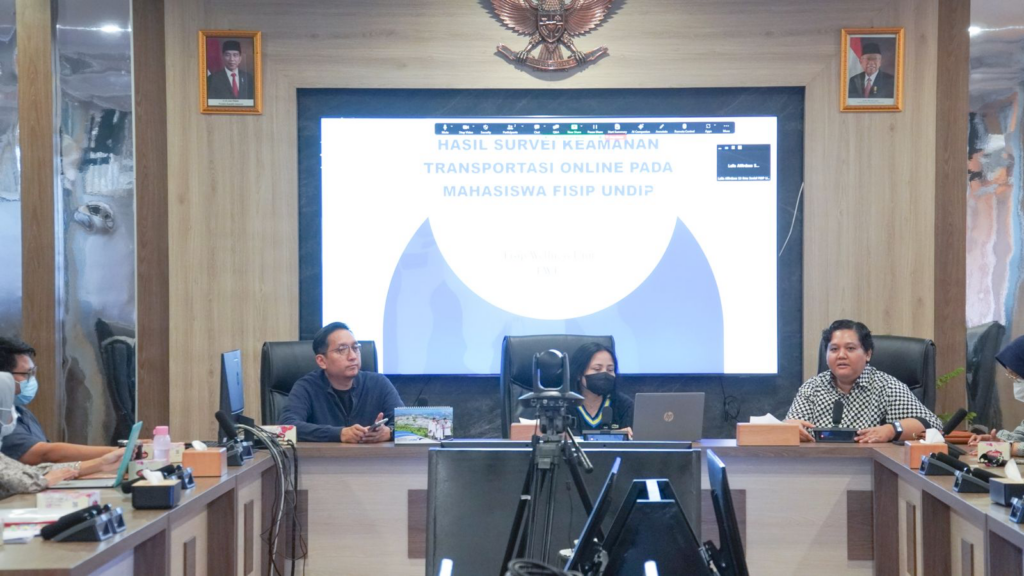
Description: Go-Jek Semarang Representative, Chairperson of FISIP Wellness Unit, and Vice Dean for Resources
FISIP Wellness Unit highlighted practices in service provision that were vulnerable to the safety risks of students and the academic community. The survey results showed that 60 percent of respondents experienced drivers with different vehicles and license plate numbers, 31 percent encountered different driver identities, 31 percent experienced drivers taking different routes, and 4 percent responded with other incidents. FISIP Wellness Unit emphasized that the survey revealed instances of sexual violence, including 4 cases of explicit language, 2 cases of being taken to unfamiliar routes or destinations, 11 cases of verbal violence, and 2 cases of drivers touching or groping sexually.
Given the vulnerability of students and other academic community members to sexual violence when using online transportation services, FISIP urged providers to ensure the safety of passengers, especially FISIP Undip students and academic community members, from sexual violence. During the event, the Go-Jek Semarang representative expressed appreciation for FISIP addressing this crucial issue and explained safety mechanisms based on technology, protection, and education through the #SafeWithGoJek platform, including features such as “Share Location” and “Emergency Button” provided through the application.
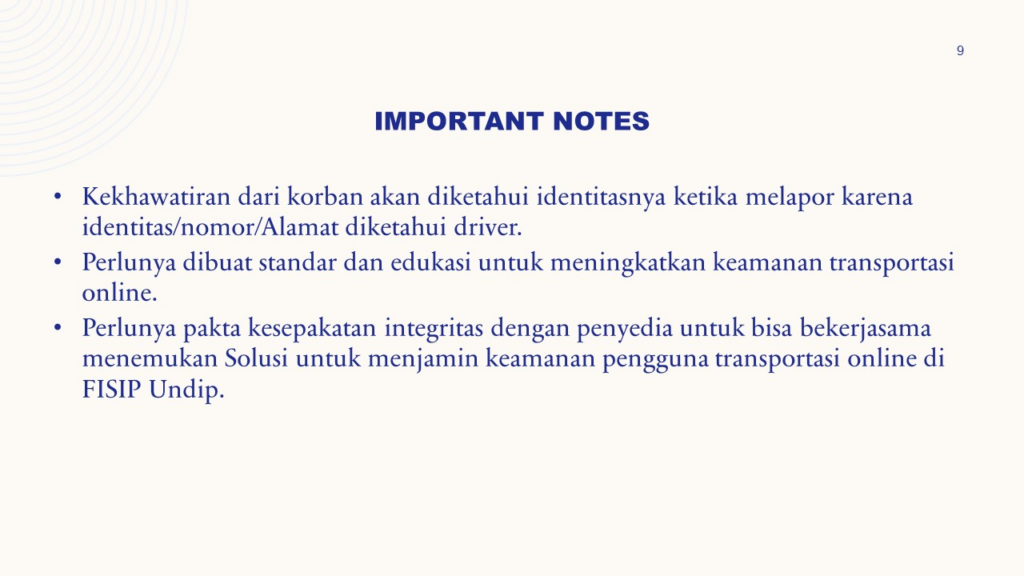
Description: FISIP Wellness Unit survey results pinpoint
Through this joint commitment and dissemination between FISIP and online transportation service providers, it is hoped that students will be safer when using these services in the future. As emphasized by the Vice Dean for Student Affairs and the Vice Dean for Resources of FISIP Undip, this protection was crucial considering the serious impact of both verbal and physical sexual violence on mental well-being and the quality of the learning process. A sense of safety and comfort is essential for the academic community when engaging in educational activities, including commuting to and from the campus. The next crucial step is the initiation of a commitment from online transportation service providers to make FISIP Undip a safe and comfortable zone for users of online transportation services.

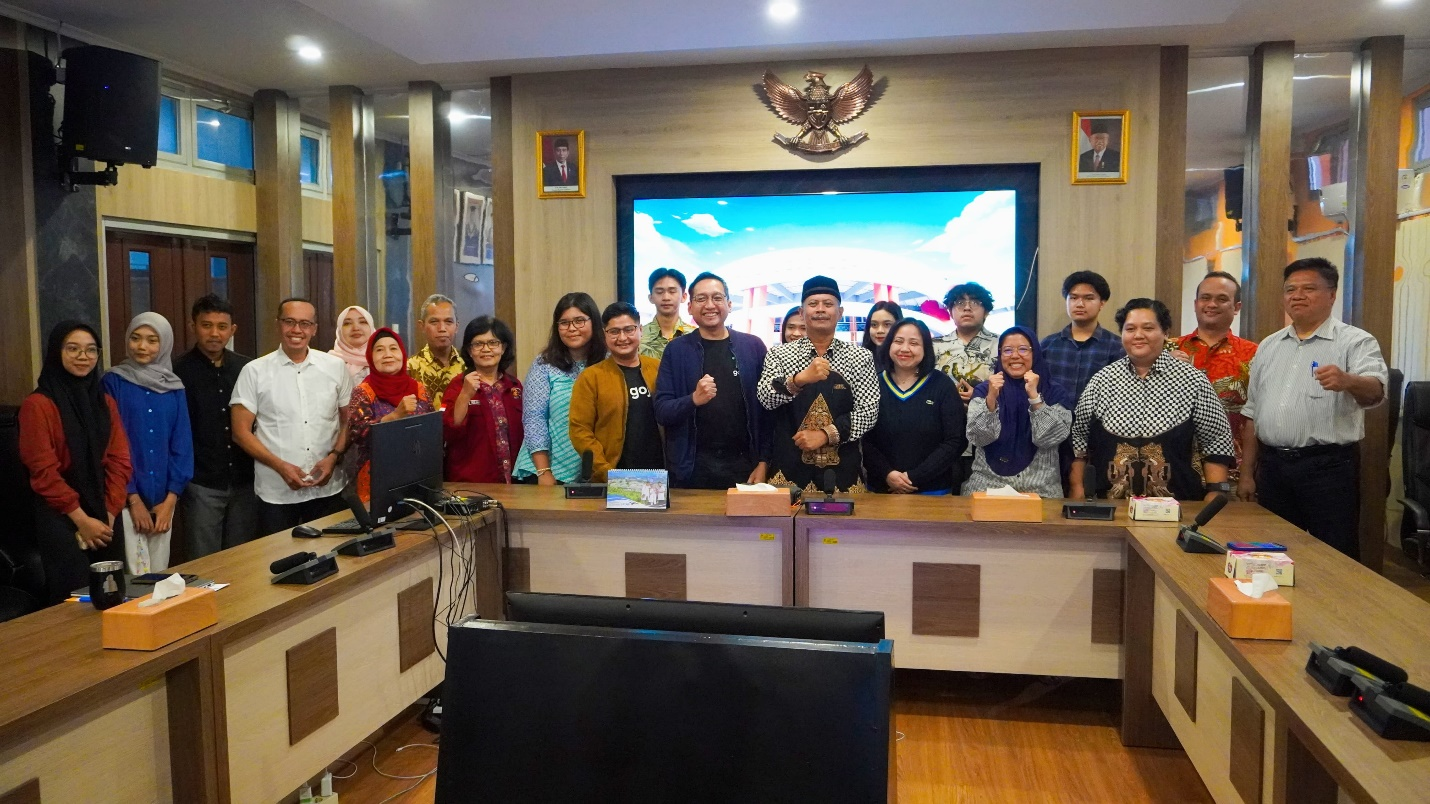

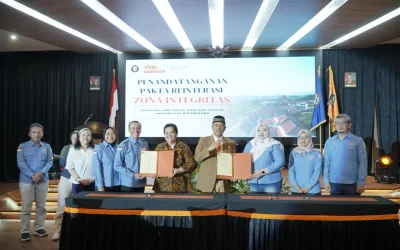
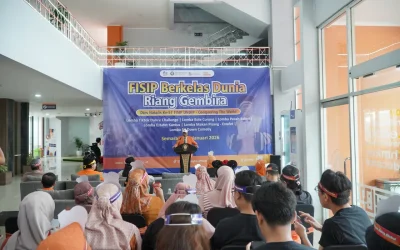
0 Comments